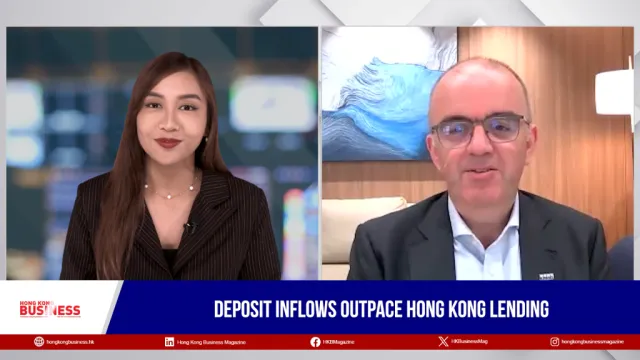
Warning: Another dip into recession looms
Better chances await Hong Kong IF the US avoids dipping back into recession, China stays on course for a soft landing, and the European debt crisis does not spillover globally.
Donna Kwok, Greater China Economist at HSBC Global Research, reported:
| Facts Seasonally adjusted, exports leapt by a staggering 7.8% on the month (Sept: -4.2%). Imports contracted again, but at a much slower pace than before, by 1.8% (Sept: -8.7%). The trade balance thus narrowed to HKD 23.1bn in October from HKD 40.0bn in September. Shipments to the US expanded for the first time in half a year on ay-o-y basis, by 2.1% (Sept: -8.9%). On a m-o-m (sa) basis, they reversed September's contraction of -8.6% to expand by 7.0%. Exports to Germany and Japan improved too, rising by 4.9% and 5.1% respectively on a y-o-y basis (Sept: -0.7% and -1.5%). Versus a month earlier, they were up 1.4% and 2.6% respectively seasonally adjusted (Sept: -5.1% and -5.9%). Implications During the 2008/09 downturn, net merchandise exports had a negative contribution to headline GDP growth for four straight quarters (ranging from 7 to 12 ppt from 3Q09 to 2Q10). We've only had two consecutive quarters of negative net goods exports contributions so far, so the worst clearly has yet come, especially as the Eurozone has only just started slipping into recession. Another wild card to watch in November's trade data will be the potential negative impact of Thailand's recent floods on global and regional supply chains. Trade aside, Hong Kong is also vulnerable to Europe via the financial channel. Should a precipitous withdrawal of European bank lending from Asia be triggered, as one of Asia's top financial centers, Hong Kong will feel the pinch (European banks account for around 70% or USD 390bn of short-term international bank loans here based on BIS data). For HK, this means that although it escaped recession last quarter, another dip into recession remains on the table next year. But provided US avoids dipping back into recession, China stays on course for a soft landing, and the European debt crisis does not spillover globally, Hong Kong should strike a better balance between growth and inflation. The more China moves to defend its economy against the impact of a "long-term global recession" with a "forward looking" and flexible monetary policy, the more of a counterbalance Mainland domestic demand can provide for intra-Asian trade. The impact of Beijing's tightening measures earlier this year is still working its way through China's manufacturing sectors. This has been especially true for the larger players who have seen less benefit from Beijing's selective easing policy thus far, compared to their smaller to medium sized counterparts (as reflected in the below-50 HSBC flash PMI reading). Once the lagged impacts of these measures lift completely, Hong Kong should be able to lean even more heavily upon Mainland demand to fend off the impact of lackluster Western demand. Bottom line: Hong Kong's exports exposed economy is not immune to the West, but neither is it immune to the East. Cooler Western demand will hold back the territory's growth for the next two quarters at least, but ultimately help to counter still elevated inflationary pressures. |



















 Advertise
Advertise










